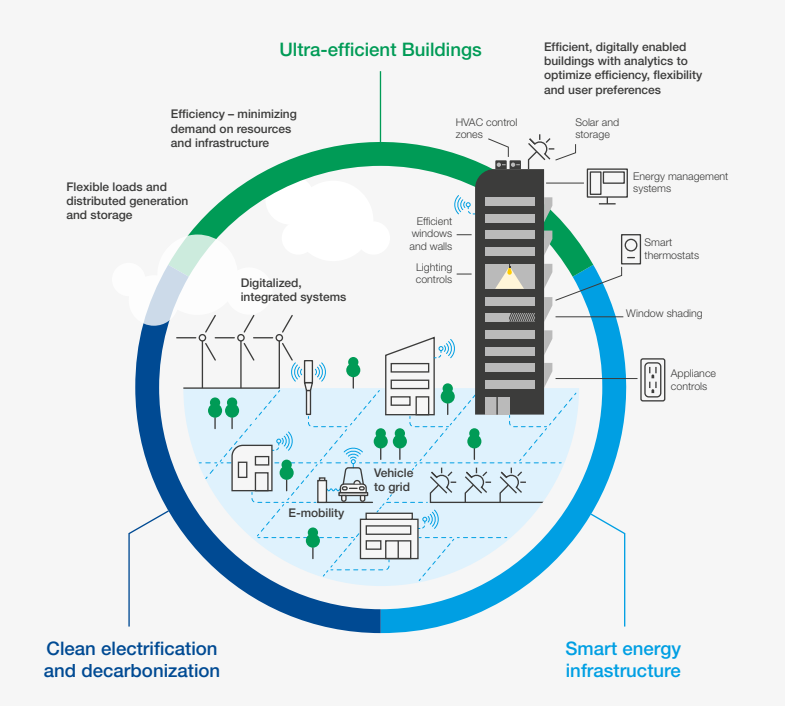Published by the World Economic Forum
The World Economic Forum's Net Zero Carbon Cities program brings together companies from 10 sectors with local, regional and national government leaders to accelerate urban transitions to a net zero future.
By convening committed global leaders who are implementing a toolbox of solutions through city sprints, it aims to localize progress at net zero.
Cities around the world account for the majority of our carbon emissions and energy use, yet they cover only 3% of the planet's land surface. As the world's population grows, so do new buildings, energy consumption and carbon emissions.
From repurposing a 1970s university building to reuse its carbon in Singapore, to an innovative district heating network connected to nearly 90 percent of buildings in Stockholm, Sweden, solutions include a wide range of policy, business and financial models. to reduce carbon emissions.
The Net Zero Carbon Cities program is creating an enabling environment for clean electrification and circularity that will result in urban decarbonization and resilience. It does so by fostering public-private collaboration to bridge the gap between the energy, built environment and transportation sectors.

The impacts of climate change will be experienced by the world's 8 billion people, most of whom live in cities.
Cities are home to more than half of the world's population and account for 70 % of the CO2 emissions at the heart of the climate crisis. By 2050, 68% of humanity will live in cities, resulting in higher energy consumption, greater infrastructure needs and higher carbon emissions. A rapid transformation in business models and policies is needed to achieve an integrated net-zero carbon future.
Buildings can play a key role in the fight against climate change. The construction and operation of buildings are responsible for 38 % of global emissions, and there is an urgent need for solutions to help accelerate the decarbonization of the urban built environment to limit global temperature rise to below 1.5°C.
At Davos Agenda 2021, representatives from government, business and civil society highlighted the approaches needed for cities to transition to a net-zero carbon future. The Forum responded by convening a variety of stakeholders with a role to play in giving global cities the opportunity to achieve net zero carbon emissions by 2050.
The Forum's Net Zero Carbon Cities program, co-chaired by Enel CEO Francesco Starace and Schneider Electric CEO Jean-Pascal Tricoire, is working to localize net zero and enable integrated multi-stakeholder environments that can deliver a decarbonized, highly electrified and resilient city. ecosystem through ultra-efficient buildings and smart energy infrastructure.
The Forum, in collaboration with Accenture, developed Toolbox of Solutions in 2021, a digital platform containing more than 200 leading practices and case studies to drive sustainability and reduce emissions in cities. The platform focuses on solutions from 110 cities around the world that address clean electrification, efficiency and smart infrastructure across all sectors, including energy, buildings and mobility.
Source: World Economic Forum


